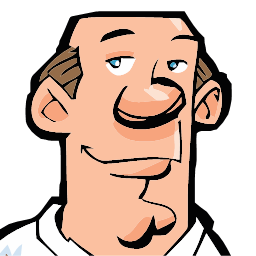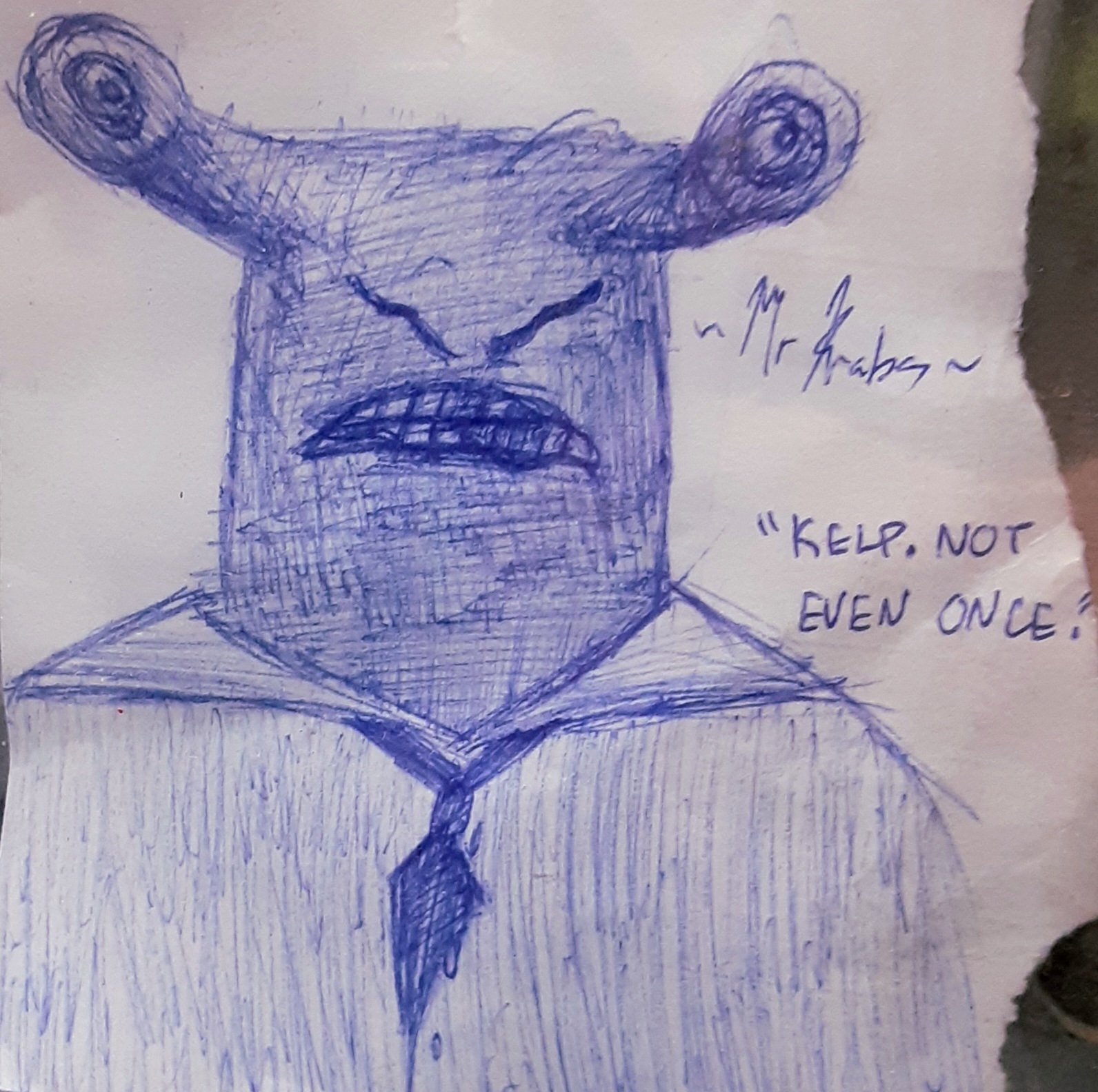“my, my! humans! so aggressive.”
rape, murder, nukes, war, torture, power, seemingly unlimited greed…
why don’t i have that insatiable drive?
can’t all be how i was raised, can it?
do you know of any studies or philosophical insights?
thx! 🙂
Great question. No.
This is basically the old nature vs. nurture debate.
No. Though everyone has ideas about it.
We all know of course the environment in which you grow up seriously influences your personality, however a surprising amount of human personality is attributed to genetics. There are case studies of twins separated at birth that will give you chills, as well as adoption studies where personalities of adopted children are more in alignment with their bio parents than the parents who raised them.
There are two personality “disorders” described in psychology that are commonly associated with the behaviors you’re describing. Antisocial personality disorder is characterized by a lack of empathy, disregard for cultural norms or rules, and engaging in behavior that harms others. Narcissistic personality disorder is characterized by a lack of empathy, a relentless focus on self-promotion and self-preservation without regard for how one’s actions affect others, and a drive to project power or status, no matter how real or imagined that power may be. Both of these disorders seem to have some degree of heritability associated with them, but it’s not super clear cut, and it’s likely that even with a genetic predisposition someone has to be brought up in a certain environment for the disorder to develop.
All this said, even more of human behavior is culturally and socially bound. Go back in time 1500 years, for example, and war, torture, execution, rape, and more were much more prevalent and socially acceptable than they are today. Even today there are cultures that tolerate more or less of each of these things.
This is my completely unsourced two cents
Anecdotally, in my old neighborhood, I knew of three families with a child adopted as an infant from from troubled circumstances. All three were raised together in the same household and with the same parenting as their non-adopted siblings. It’s a wealthy neighborhood, so the biological children ended up as studious, stable, high achievers.
The adopted kids, not so much. One worked at the store where I worked, and got fired eventually, since she was flaky, unable to focus on the job, and solicitous of any and all male attention. She showed up on the front page of local news sites one day because her parents reported her as a missing person. Turns out she went home with a guy she met at a bar and didn’t bother to tell anybody. Her co-workers were not surprised.
Another was my apartment neighbor, who was 19 and dating a 50-something guy. She couldn’t hold down a job, and he supported her. She eventually moved in with him, and told a homeless friend that he could move into the apartment her parents paid for. (He was a lot cleaner than the rabbit she barely cared for.) After she left, the fruit fly infestation in my apartment cleared up, and my landlord threw out the refrigerator from her unit rather than clean the maggots out of it.
The third was the worst. She got involved with a guy, hatched a plan for he and his friend to rob her parents, but the robbery went wrong and they murdered them instead.
The fact that all three turned out the polar opposite of the biological kids in the same environment sure points to some inborn traits.
These are crazy stories! And valuable because they show a more well to do side than the usual. My experience with adopted and natural born kids being raised together comes from the other end of the socioeconomic ladder. My brother is a foster parent and they specialize in neonates and babies but also have adopted kids and the difference between their natural and adopted kids are pretty minimal. The kids are still young now but I don’t see any difference that would affect future life position outside of chance.
Crying babies who are yelled at, spanked and/or ignored, grow their fundamental brain structures around those experiences. Getting moved to loving homes won’t erase that.
There are a lot of studies that connect ADHD with early childhood trauma/abuse.
Well it is an anecdote. Can’t draw any real conclusions there. Too many variables. How old were the kids when adopted? Were they abused or neglected or adopted right at birth? How well did the parents treat the adopted vs non-adopted kids? Were the adopted kids healthy at birth or could fetal alcohol syndrome have played a factor? Were there issues with discrimination based on race? And myriad other questions…
To me it sounds more like an environmental issue as this is what they all have in common.
Skyward fan?
just finished the 2nd audiobook a few days ago ;)
The long branch is the long arm of altruism, the short branch is the short arm of altruism.
If you had the ability to push a button and divert $0.01 from a random million US bank accounts in a way that would leave no trace, would you press the button?
Power corrupts. Most people are not strong enough to resist the abuse of power. It starts very small - such a minor, harmless thing, but then you abuse power more and more to cover your tracks or to benefit yourself more.
I really like this question and it is one I think about a lot when daydreaming since having kids. When would I know if they’ve gone bad? If they do end up antisocial or narcissistic will I be able to point to a situation or chain of events that caused it? Will I even know?
Don’t have kids. Global fresh water reserves will be 40% over capacity by 2030, and 90% of global top soil and arable land is at risk of depletion by 2050.
And that’s just water and food, add climate collapse and fascism, and billions of people are going to die in the next 30 years.
This is not a world you should be looking at and thinking about adding more lives to.
Lead exposure in childhood is one thing we know leads to poorer impulse control; that is to say, being short-sighted and selfish.
And not to mention parents with high lead exposure who have anger issues, poor impulse control, etc. don’t make for good carers of small, loud and unpredictable children.
I have awful impulse control (severe ADHD) but usually I just eat an entire packet of Oreos instead of exploiting people for selfish reasons.
Imagine you were filthy rich and a country had all Oreos and would ban all exports and tourists. Sure you wouldn’t bribe a minister or two? Give a poor kid some money and exploit them to build an over the border Oreo smugglers ring …?!
Err, yeah, I wouldn’t do that, I’d just buy some other kind of snack!
That kind of comes down to values, though. Does a person value Oreos over honesty and integrity, or do they just enjoy Oreos? Someone might also enjoy most foods, they might prefer to fence, or they might prefer to knit.
TBH if I was filthy rich, I would help my loved ones, keep a decent retirement savings (reasonable), and then probably give the rest away. I would feel pretty bad keeping that kind of money if I knew that other people were starving and homeless. Happier people make for a better society too, imo.
That’s exactly the kind of long-term thinking to which lead exposure is deleterious.

Yup. Nature aaaand nurture. There are countless studies and conversations and theories about this, but given the sheer number of variables and the very difficult question of “is anything you experience experienced the same way by others?”, there aren’t many definitive answers and no universal answers.
This guy wrote a book a long time ago which goes into this. Something about ‘material conditions’?
While I’d say altruism is not a virtue the way it is defined in our culture, I will say that who we are is about 50% nature and 50% nurture, and inside we are very different beings for one reason or other. A born sociopath is only human the same as you in visible form, the being is nothing like you. A person who was badly abused and tattoos his face and perpetuates abuse on those around him is completely different from you both. A monk in a monestsry and an Instagram influencer are completely different beings inside, besides some basic neurology that makes them both human. If you could see the being inside every human they’d look as different as Pokémon. That’s my philosophical insight.
I don’t have an answer to you but if you like this sort of discussions/topics, I highly recommend the book Behave by Sapolsky.
thanks! :)
I think it’s most to do with exactly how much wealth a person was born into.
Someone who is constantly on the verge of being homeless, possibly even starving, will very soon get desperate enough to do things they aren’t proud of to survive.
On the other hand, someone born into immense wealth will have very little understanding of people who are struggling. That’ll make it very hard for them to empathize. And with all that power, their sheer indifference will have them crushing the poor under their boots like ants. This is highly exacerbated by the fact that it is in their best interest to support policy that transfers wealth upwards.
Not sure if I fully agree. I’ve seen many people who grew up in luxury and safety who care a lot about the less fortunate in society. There’s also been many instances of 2 siblings growing up in a very similar environment, yet one is very empathic and altruistic and the other one turns out to be a selfish greedy person.
Not that I think you’re completely wrong though. What life you’re born into has a huge effect on who you become. Yet people seem to deal differently with the cards they’ve been handed.
If I look at me personally, I feel like it’s partially genetic, partially in what kind of household you grow up, and also partially your experiences while growing up. I was, for instance, quite “soft” for a guy which meant I got bullied by the more dominant and selfish people. I just wanted everyone to get along and didn’t want to hurt anyone, and because of that I constantly got kicked down. For me it’s turned me into someone who still wants everyone to get along, for everyone to get a chance. Yet it could’ve easily have fallen the other way, where I would’ve let the hate and resentment for other people get to me and turn me into a more self-centered and distrustful person. I feel like this often happens when people fall into the incel or alt-right movements. I think it’s mostly just a combination of how my brain works (genetic) and the support I had at home that kept me away from that. Had I gown up in an environment where my parents would’ve been more “rough” themselves, I’m not sure it’d have gone in the same direction.
My thoughts are similar, but I would consider the cause to be the lack of adversity and challenges. If you are brought up in a sheltered environment where every problem is handled by someone else, you don’t develop proper empathy or problem solving skills.
deleted by creator
Power corrupts. I’d say probably 95% of people who consider themselves altruistic, if you gave them significant power, would end up abusing it before too long.
deleted by creator
I disagree completely. I strongly believe that people can start with the absolute best intentions and attain power with good morals and ethics, but eventually the temptation to use power for your own benefit is too strong for most people to ignore.
If you had the power to divert $0.01 from every bank account in the US to your own account, would you do it?
Another thing to consider - you have power over animals. Do you use it for your own benefit?
deleted by creator
It happens much faster than you’d think, and it doesn’t have to be absolute power by any means. Have you seen/heard stories of even tiny amounts of power going to people’s heads? It doesn’t happen because they’re evil people, it happens because they had a way to improve their living situation (maybe even for nothing more than an ego boost) at the expense of others, even if in a very minor way, and chose to take it.
We would all like to believe that the world is good and fair and that if we just got the right people in power, everything would be okay, but that is just not realistic unfortunately. Power almost always corrupts anyone who wields it, and as long as there are unequal structures of power, there will be abuses of power.
Ambition isn’t a binary thing. Most people have some amount of ambition, even if it’s just “I aspire to get a decent job so I can live comfortably”. It’s surprisingly seductive to abuse power to further your goals, even seemingly unambitious goals, especially if you think you can get away with it, and doubly so if you think that your abuse of power isn’t really doing any significant harm (as per my example of taking $0.01 from people). If you give yourself a moral justification for your abuse of power on top of those things, you’re doomed.
I want to believe that if I had significant power that I wouldn’t abuse it, but I have to be realistic. I have no reason to think that I’m special or that I would somehow be immune to this. It’s better for all of us that we get rid of as much of the unequal structures of power in our society as possible.
deleted by creator
All of the things you suggest (checks and balances, strong education, democratic reform) have consistently been weakened rather than strengthened - this is because they would negatively impact those in power, and those in power make the decisions about implementing those things.
In addition, they would help, but not nearly enough. Checks and balances are a temporary improvement but eventually become captured and consolidated by the power they’re checking/balancing. Education helps people to understand how these systems are abusive, but can be countered by propaganda and misinformation - no one is immune to psychological manipulation. And democratic reform again acts as a temporary improvement, but eventually, power is consolidated and the reforms are integrated.
Humans unfortunately are still quite instinctual creatures, we often don’t have an “off” switch that says “okay, we have enough material wealth / security now, we don’t need to hoard anymore!” because we’re kind of always inclined towards building up a stockpile for winter.
We need to accept the reality of our situation and dismantle power structures - this means the abolition of money, the police, prisons, private property ownership, etc. - this may sound far fetched, but it is the only way that we can have a world without abuses of power and exploitation. I completely believe that it’s possible and worth working towards achieving that goal.
deleted by creator
deleted by creator










